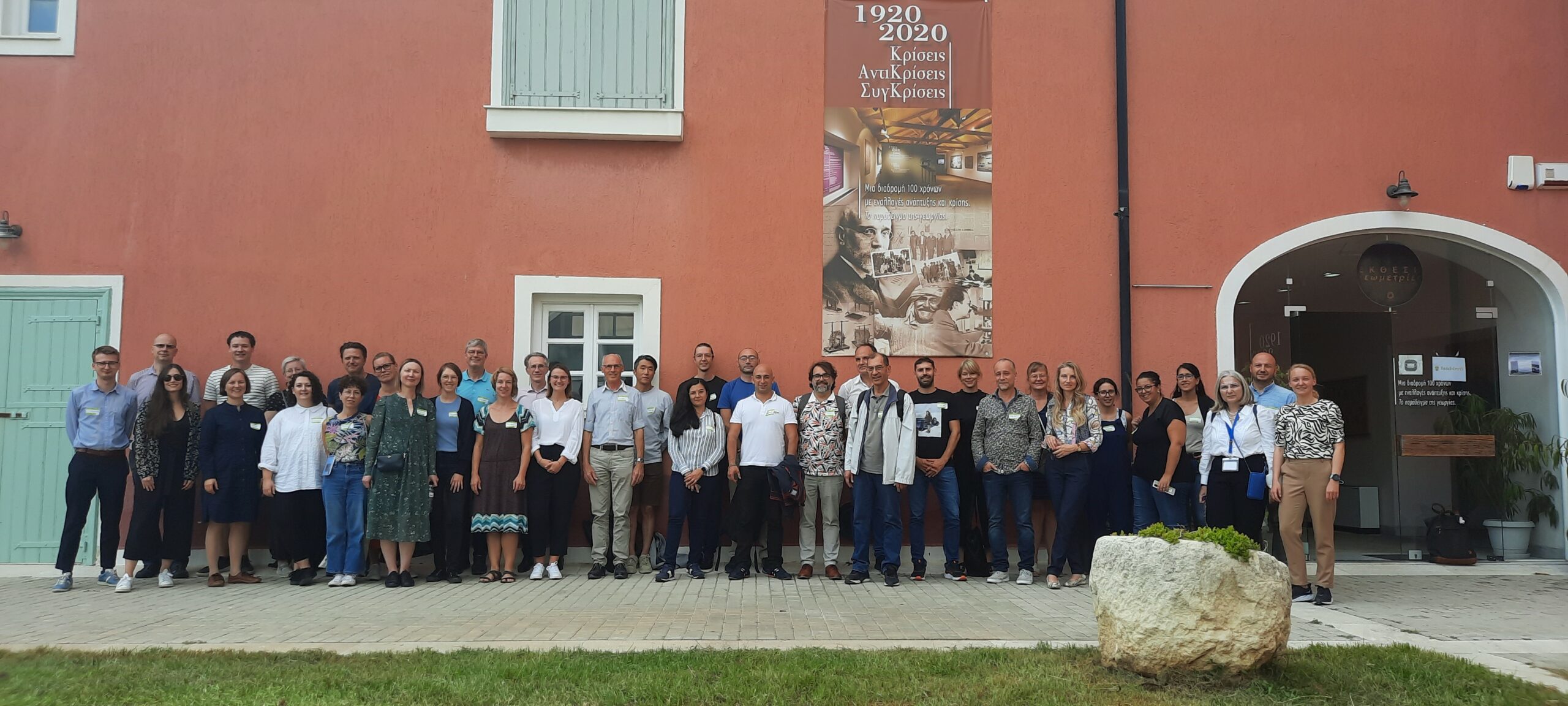Plasticulture: A joint stakeholder forum on micro and nanoplastics in agricultural soils in Athens

The PAPILLONs project met in Athens in October 2022 (Photo by Szabolcs Zoldreti)
The research project PAPILLONS (Plastic in Agricultural Production: Impacts, Life-cycle and LONg-term Sustainability) organized the event on the 14th of October in sunny Athens. This was a follow-up to the first joint stakeholder forum meeting with the research project MINAGRIS (Micro- and nano-plastics in Agricultural Soils).
Various stakeholders and organizations with an interest in agricultural plastics were invited to attend the event from all over the world, resulting in over 250 people registering online as well as stakeholders in person in Athens.
The topic of the Forum was ‘Plasticulture – an international perspective on environmental sustainability’. The event aimed to provide stakeholders an opportunity to gain insights and participate in the debate on global policy developments on the use of plastic in agriculture, and therefore featured keynote speeches highlighting the work of international organizations such as FAO and UNEP relating to agricultural plastic.
The Stakeholder Forum came at a very relevant time in terms of policymaking. The first session of the Intergovernmental Negotiating Committee (INC1) to develop an Internationally legally binding instrument on plastic pollution is soon upcoming this November, while the EU is working to establish a clear policy framework on biobased, biodegradable, and compostable plastics as well.
Scientists have therefore presented the latest updates from their research activities on the use, diffusion, management, and ecological impacts of agricultural plastics emerging from the PAPILLONS and MINAGRIS projects, and other research activities to fill the existing knowledge gaps. Here, a wide range of topics was invoked during the researchers excellent presentations, including themes such as the quantification of micro- and nanoplastics in agricultural soil, field plot experiments, mesocosm studies, or the effects of conventional and biodegradable microplastic particles on plants with even some preliminary results to be shared.
Following the international theme of the event’s topic, several guest speakers from France to China took the floor to address the topic of plastic waste management in agriculture by giving further insights coming from academia, industry and NGOs.
Participants have agreed that we need to increase knowledge and awareness on the subject, and disseminate the best practices. Farmers need to be therefore properly informed regarding innovative alternatives to the plastic used in agriculture, and be trained on how to develop a set of good farm practices to reduce, reuse and recycle the plastic used in agriculture.
As a closure, PAPILLONS Project Coordinator, Luca Nizzetto, brought attention to the IKHAPP initiative, representing a community of scientists and experts working to address global plastic pollution.
The PAPILLONS research community would invite everyone interested in the topic of the impacts, lifecycles & long-term sustainability for plastics in agriculture to follow their research activities, so that we can keep our soil systems fertile and healthy.
The PAPILLONS project has received funding from the European Union’s Horizon 2020 research and innovation programme under grant agreement No 101000210.
Written by Szabolcs Zoldreti